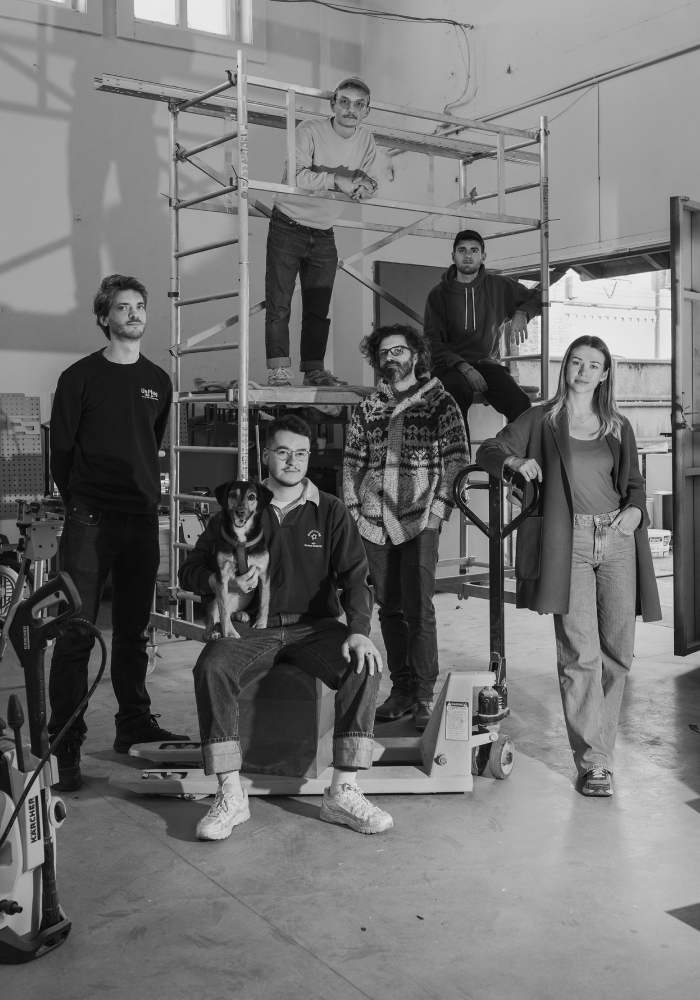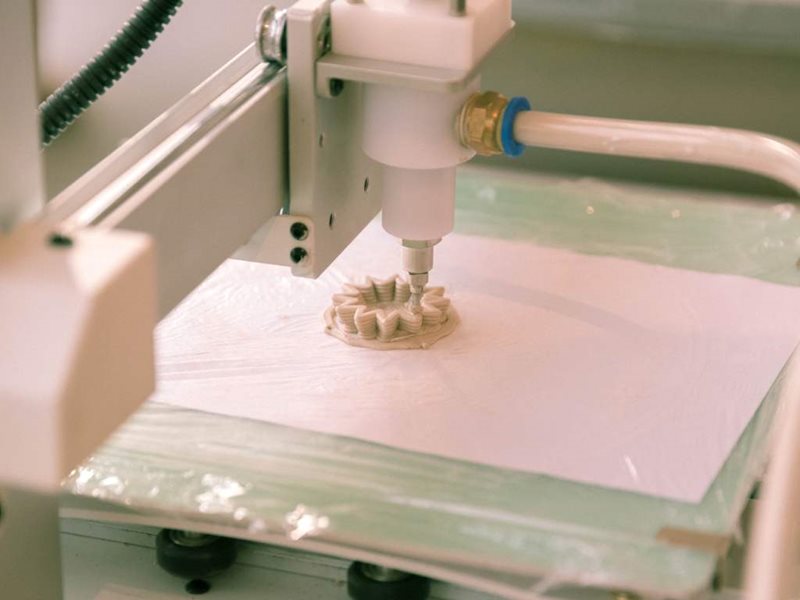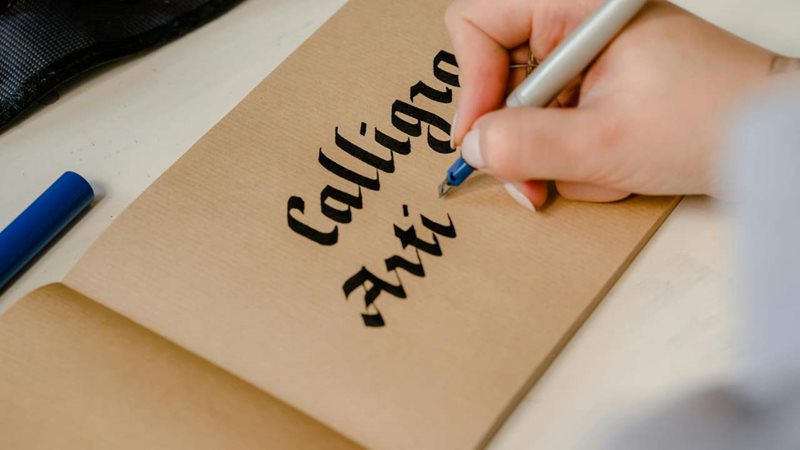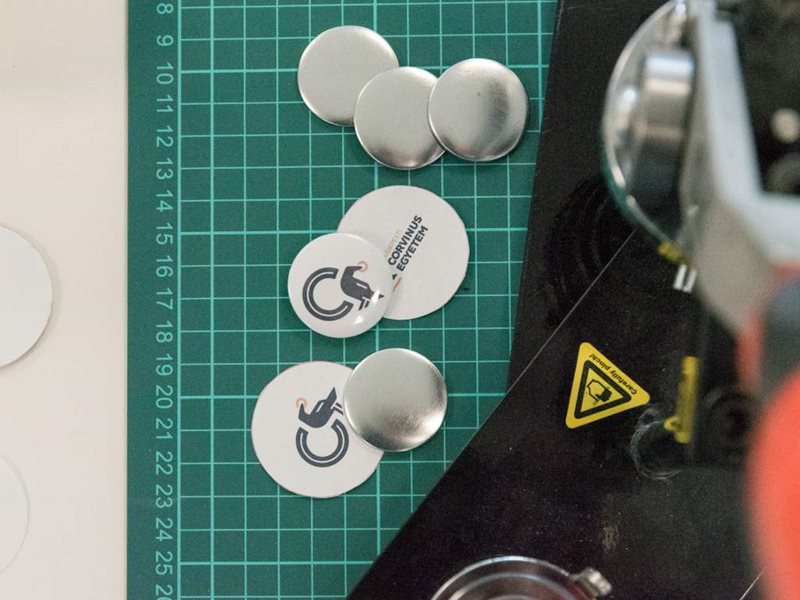Why has a Makerspace been opened at Corvinus?
_20240529112402_0.jpg)
“I’ve noticed that, in the digital noise we live in, the possibility of creating something with our hands increasingly helps us get recharged. That has been used as the basic concept for the space, which has been equipped with various traditional and digital tools of manufacturing technology. Students are not only offered various guided mini-courses in creating tangible objects, but they can also use the space for conducting individual projects to complement their theoretical research efforts. These mini-courses simulate the future, that is to say, they combine digital methods and traditional machining. From 3D ceramics printing to Ikea hacking, students can also learn embroidery and bookbinding,” Dávid Pap, head of Makerspace, explains.

Currently, they offer 16 different workshops (3D modelling, Graphic design, Fashion, Japanese bookbinding, Linocut, Embroidery, Calligraphy, Paper craft, Merch making, Electrical installation works, Wearable intelligence, Creating visual works of art using AI, IKEA hack, Self-designed 3D printed objects, Spatial data visualisation, Porcelain 3D printing), which do not require any prior knowledge. Makerspace staff provide the necessary materials and know-how, in addition to the machines.

But who are they and what was their background when coming to Corvinus?
Dávid Pap, the founder of the first FabLab in Hungary, was approached by Márton Barta, Head of Strategy, a year ago, when they started to develop ideas for establishing a University Makerspace.
“What was most exciting about this request was how to build a system for university citizens coming from non-design or non-technology fields that offers workshops enabling even lay people to acquire the knowledge necessary for creating something independently, all in a way that is lovable and enjoyable,” Dávid says, whom you can meet at workshops, such as IKEA hack and electrical installation works, in the Makerspace.
In the Gellért Campus building, you can come across Georgina Török and Tamás Lajos most of the time during the day. Together with Dávid Pap, they designed the Makerspace space in the Gellért Campus and the themes of the workshops. As FabLab have developed prototypes for many domestic design companies over the past fifteen years, the expertise of its team serves as a guarantee that they can often make even the most daring ideas a reality.
Tamás, another member of the Makerspace team, designed the symbolic set of keys for the inauguration of the Gellért Campus and is currently working on several creative projects for the University.

What does embroidery or 3D printing add to studies of economics?
“I think in today’s world, even someone arriving with an economics or social science background can only benefit from receiving a more honest view of technology. Most of us tend to just watch, or even copy without thinking, the manual creative processes of others, even though our own design and machining efforts can release enormous creative energies that can be channelled back into our everyday work and studies,” Dávid Pap explains.
The Makerspace in the Gellért Campus has the declared aim of taking staff and students out of their comfort zones a bit. The workshops currently available have been designed to flow seamlessly into each other, with each individual workshop teaching a new skill. Over the past months, David and his team have found that initially there was more interest in traditional creative workshops such as Japanese bookbinding or calligraphy, attended typically by groups of students that had already been somewhat close-knit. Digital design and manufacturing technology sessions are also becoming increasingly popular.
David says that, in the meantime, joint thinking has also started in-house about new workshops tailored to individual training courses or organizations. For example, a workshop covering the basics of programming has already been implemented for the Corvinus-MSM-Seed EMBA programme, and they started to develop ideas with HR about team-building sessions for staff and with Corporate and Institutional Relations about team-building sessions for partner companies.

“The first step in designing any new workshop is to identify the other party’s problems and needs, and the purpose of the course. We never deliver off-the-shelf solutions, we develop and customise these workshops with the involvement of the prospective participants,” David says about their working method.
The head of Makerspace considers the creative space developed at the Gellért Campus to be an exciting prototype, and he believes that, if the Makerspace can be sufficiently integrated into the fabric of the University, the know-how acquired here can eventually be exported also to other universities.
They are still absolutely in the pilot phase, constantly listening to feedback from course participants, exploring the operation of the University, trying to draw lessons and incorporate them into the next workshops.
Makerspace workshops are subject to registration. You can read more about the individual workshops and register for them here.